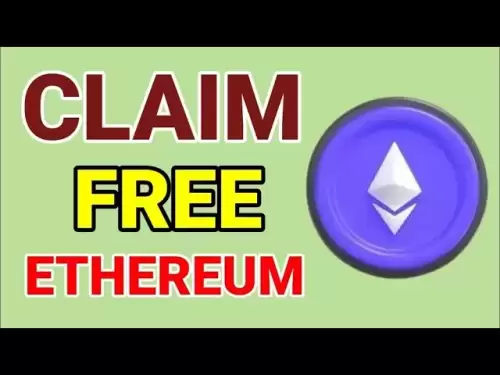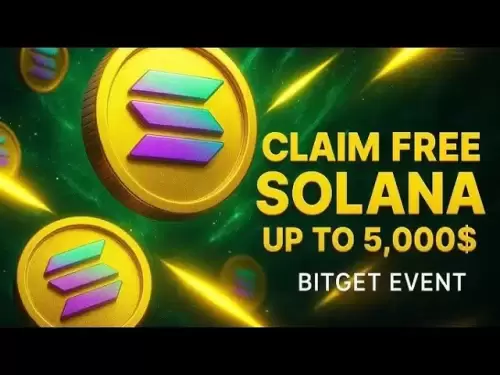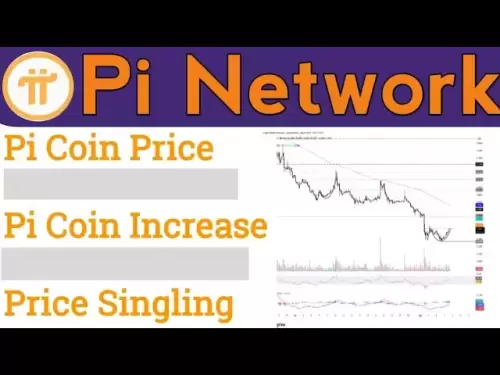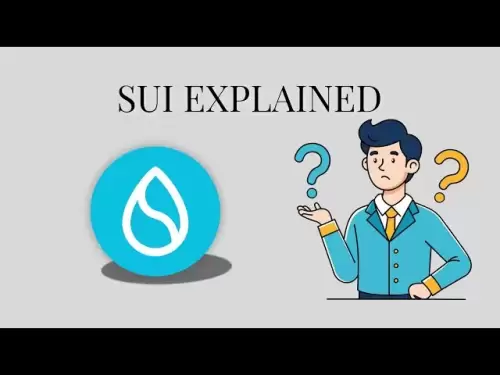-
 Bitcoin
Bitcoin $116900
0.00% -
 Ethereum
Ethereum $4280
5.48% -
 XRP
XRP $3.265
-1.45% -
 Tether USDt
Tether USDt $1.000
-0.01% -
 BNB
BNB $807.0
1.41% -
 Solana
Solana $183.1
2.93% -
 USDC
USDC $0.9999
0.00% -
 Dogecoin
Dogecoin $0.2440
6.50% -
 TRON
TRON $0.3357
-0.88% -
 Cardano
Cardano $0.8178
2.63% -
 Hyperliquid
Hyperliquid $44.13
7.45% -
 Chainlink
Chainlink $21.39
9.09% -
 Stellar
Stellar $0.4524
-0.84% -
 Sui
Sui $3.957
2.13% -
 Bitcoin Cash
Bitcoin Cash $572.7
-2.54% -
 Hedera
Hedera $0.2671
1.54% -
 Avalanche
Avalanche $24.77
4.17% -
 Ethena USDe
Ethena USDe $1.001
0.02% -
 Litecoin
Litecoin $122.3
-1.94% -
 Toncoin
Toncoin $3.432
2.26% -
 UNUS SED LEO
UNUS SED LEO $9.007
0.49% -
 Shiba Inu
Shiba Inu $0.00001396
5.26% -
 Uniswap
Uniswap $11.09
1.64% -
 Polkadot
Polkadot $4.155
4.57% -
 Dai
Dai $1.000
0.00% -
 Pepe
Pepe $0.00001253
5.11% -
 Cronos
Cronos $0.1588
2.67% -
 Bitget Token
Bitget Token $4.512
0.05% -
 Monero
Monero $275.0
0.64% -
 Ethena
Ethena $0.7527
15.10%
What is the community governance model of BCH?
Bitcoin Cash (BCH) uses a decentralized governance model, relying on community consensus from developers, miners, and users to evolve through open-source development and discussions, rather than formal voting.
Mar 14, 2025 at 07:56 am
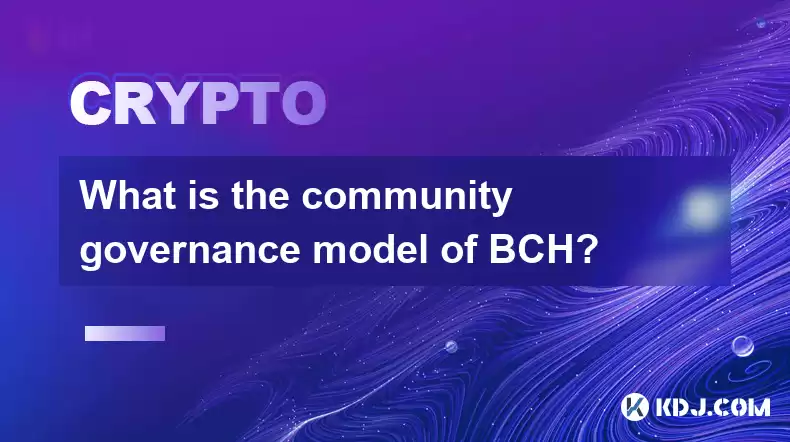
Key Points:
- Bitcoin Cash (BCH) utilizes a decentralized governance model, relying heavily on community consensus rather than a centralized authority.
- This model involves various actors, including developers, miners, and users, all contributing to BCH's evolution.
- Consensus is primarily achieved through open-source development, community discussions, and the economic incentives embedded in the BCH blockchain.
- While there's no formal voting system, proposals for changes are often debated and implemented based on community acceptance and developer consensus.
- The lack of a formal voting structure can lead to debates and disagreements, but the open and transparent nature fosters a dynamic evolution.
What is the community governance model of BCH?
Bitcoin Cash (BCH) operates on a decentralized, community-driven governance model. Unlike some cryptocurrencies with designated governance councils or voting systems, BCH's evolution is shaped by the collective input of its community. This includes developers who create and maintain the software, miners who secure the network, and users who rely on the BCH blockchain. The process is largely informal, relying on open communication and consensus building.
How does the community reach consensus on changes to BCH?
There isn't a formal voting mechanism in BCH's governance. Instead, proposals for upgrades or changes are typically discussed on forums, mailing lists, and social media platforms dedicated to BCH. Developers actively engage with the community, presenting their proposals and responding to feedback. Ultimately, the implementation of a change often hinges on whether developers agree on its merits and the broader community accepts it. Miners also play a crucial role; their willingness to support a new version of the software through their mining activity is vital for its success.
What are the key players involved in BCH governance?
Several key players contribute to BCH's governance. Firstly, developers are responsible for creating and maintaining the BCH software. Their technical expertise is vital for implementing upgrades and addressing bugs. Secondly, miners validate transactions and secure the network, making their support for software updates essential. Finally, users, the people using BCH for transactions and payments, provide feedback and shape the direction of the cryptocurrency through their usage patterns and participation in community discussions.
What are the advantages of BCH's community governance model?
The decentralized nature of BCH's governance model offers several advantages. It fosters a high degree of transparency, as all discussions and development activities are generally open to public scrutiny. This openness promotes accountability and allows the community to hold developers and miners responsible. Furthermore, it can lead to more innovative solutions as diverse perspectives and ideas are considered. The decentralized approach is also more resistant to censorship or manipulation by any single entity.
What are the potential drawbacks of BCH's community governance model?
While BCH's decentralized governance offers advantages, it also presents challenges. The lack of a formal voting structure can make reaching consensus difficult and time-consuming. Disagreements between developers or factions within the community can lead to delays or even forks, as seen in the history of Bitcoin Cash itself. The informal nature can also make it harder to resolve conflicts efficiently, potentially leading to slower progress compared to projects with more formalized governance structures. Furthermore, the community’s expertise and technical understanding may vary, impacting the quality of decisions.
How does the economic incentive model influence BCH governance?
The economic incentives built into BCH's blockchain significantly influence governance. Miners, who receive transaction fees and block rewards, have a strong economic incentive to support a stable and secure network. This incentivizes them to adopt and support software updates that enhance the blockchain's security and efficiency. Similarly, developers often receive funding or grants for their work, creating a financial incentive for them to contribute to the BCH ecosystem. These economic incentives contribute to the overall stability and development of BCH.
What role does open-source development play in BCH governance?
Open-source development is a cornerstone of BCH's governance. The BCH codebase is publicly accessible, allowing anyone to review, audit, and contribute to the software. This transparency allows the community to scrutinize changes before implementation, reducing the risk of introducing vulnerabilities or unintended consequences. The open nature also encourages collaboration and participation from a diverse range of developers, fostering innovation and improving the overall quality of the BCH software.
How can community members participate in BCH governance?
Community members can participate in several ways. Active participation in online forums and discussions is crucial for sharing ideas, providing feedback, and influencing the direction of BCH. Contributing to the development of BCH, whether through coding or testing, is another way to actively shape its future. Supporting BCH businesses and using BCH for transactions also contributes to the overall growth and health of the ecosystem. Furthermore, educating others about BCH and its benefits helps increase adoption and strengthens the community.
Frequently Asked Questions:
Q: Is there a central authority governing BCH? A: No, BCH's governance is decentralized, with no single entity controlling its development or direction.
Q: How are major upgrades to the BCH protocol decided? A: Through community discussions, developer consensus, and the adoption by miners. There's no formal voting process.
Q: Can anyone propose changes to BCH? A: Yes, anyone can propose changes, but their adoption depends on community acceptance and developer implementation.
Q: What is the role of miners in BCH governance? A: Miners play a vital role by securing the network and validating transactions. Their support for software upgrades is crucial for their implementation.
Q: How transparent is the BCH governance process? A: The process is largely transparent due to the open-source nature of the development and the public nature of community discussions.
Disclaimer:info@kdj.com
The information provided is not trading advice. kdj.com does not assume any responsibility for any investments made based on the information provided in this article. Cryptocurrencies are highly volatile and it is highly recommended that you invest with caution after thorough research!
If you believe that the content used on this website infringes your copyright, please contact us immediately (info@kdj.com) and we will delete it promptly.
- Shiba Inu, Pepe, and Remittix: A Tale of Memes, Hype, and Real-World Utility
- 2025-08-10 08:30:12
- Ethereum Price, ETH Tokens, Rally Prediction: Is a New All-Time High In Sight?
- 2025-08-10 08:30:12
- XRP, Elon Musk, and Wealth: A Crypto Conundrum
- 2025-08-10 08:50:12
- Retire Early with Crypto: High-Conviction Plays Beyond Bitcoin
- 2025-08-10 08:50:12
- BlockDAG, Render, and Polkadot: Charting the Course for Long-Term Crypto Dominance
- 2025-08-10 08:55:21
- Toncoin's Ascent: Price Predictions and the VERB Strategy Impact
- 2025-08-10 08:55:21
Related knowledge

How to purchase Aragon (ANT)?
Aug 09,2025 at 11:56pm
Understanding Aragon (ANT) and Its PurposeAragon (ANT) is a decentralized governance token that powers the Aragon Network, a platform built on the Eth...

Where can I buy UMA (UMA)?
Aug 07,2025 at 06:42pm
Understanding UMA and Its Role in Decentralized FinanceUMA (Universal Market Access) is an Ethereum-based decentralized finance (DeFi) protocol design...

How to buy Storj (STORJ) tokens?
Aug 09,2025 at 07:28am
Understanding Storj (STORJ) and Its Role in Decentralized StorageStorj is a decentralized cloud storage platform that leverages blockchain technology ...

What is the best app to buy Nano (NANO)?
Aug 09,2025 at 03:35am
Understanding Nano (NANO) and Its Unique FeaturesNano is a feeless, instant cryptocurrency designed for fast peer-to-peer transactions. Unlike many ot...

Where can I purchase Siacoin (SC)?
Aug 08,2025 at 11:14am
Understanding Siacoin (SC) and Its Role in the Sia NetworkSiacoin (SC) is the native cryptocurrency of the Sia decentralized cloud storage platform, a...
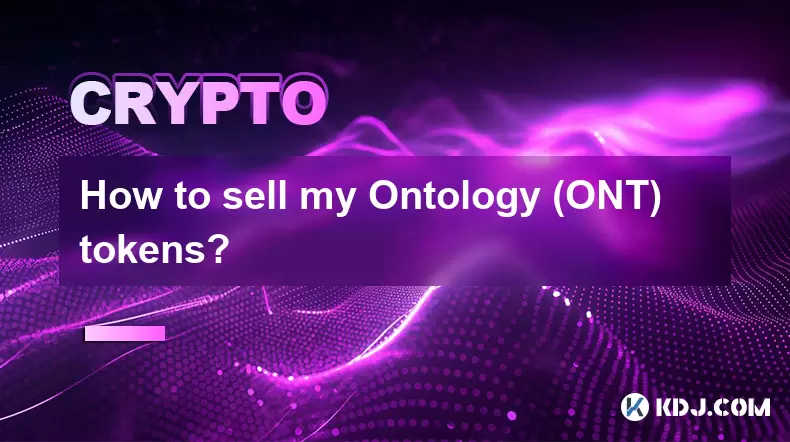
How to sell my Ontology (ONT) tokens?
Aug 09,2025 at 06:08pm
Understanding Ontology (ONT) and Its Trading EcosystemBefore selling your Ontology (ONT) tokens, it's essential to understand the nature of the crypto...

How to purchase Aragon (ANT)?
Aug 09,2025 at 11:56pm
Understanding Aragon (ANT) and Its PurposeAragon (ANT) is a decentralized governance token that powers the Aragon Network, a platform built on the Eth...

Where can I buy UMA (UMA)?
Aug 07,2025 at 06:42pm
Understanding UMA and Its Role in Decentralized FinanceUMA (Universal Market Access) is an Ethereum-based decentralized finance (DeFi) protocol design...

How to buy Storj (STORJ) tokens?
Aug 09,2025 at 07:28am
Understanding Storj (STORJ) and Its Role in Decentralized StorageStorj is a decentralized cloud storage platform that leverages blockchain technology ...

What is the best app to buy Nano (NANO)?
Aug 09,2025 at 03:35am
Understanding Nano (NANO) and Its Unique FeaturesNano is a feeless, instant cryptocurrency designed for fast peer-to-peer transactions. Unlike many ot...

Where can I purchase Siacoin (SC)?
Aug 08,2025 at 11:14am
Understanding Siacoin (SC) and Its Role in the Sia NetworkSiacoin (SC) is the native cryptocurrency of the Sia decentralized cloud storage platform, a...

How to sell my Ontology (ONT) tokens?
Aug 09,2025 at 06:08pm
Understanding Ontology (ONT) and Its Trading EcosystemBefore selling your Ontology (ONT) tokens, it's essential to understand the nature of the crypto...
See all articles





















